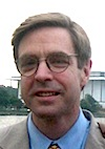Sandy Mackenzie
 |
|
Sandy Mackenzie - BA 1970 - reflects on his years at HÂþ», and his subsequent education and career. I graduated from HÂþ» some 40 years ago, but like most people my age - I will be 61 years of age on March 31 - it does not seem like it. I was an honors economics student aged 19 in my third year in 1969 when I was lucky enough to be nominated for the Rhodes scholarship from Nova Scotia. Professor Comeau sagely advised me to convert to a general arts program, so that I would leave HÂþ» with a degree, in case I wandered from the straight and narrow path at Oxford. I heeded his advice. In the event, I spent four years in England, reading Philosophy, Politics and Economics and then obtaining an M. Phil. in Economics.
The late 60s and early 1970s were unsettling times for economics, as they were for US university campuses. Milton Friedman and Ed Phelps had independently come up with the theory of the natural rate of unemployment, the successor to the Phillips curve in 1968. This major development had yet to make much of a dent in the thinking of English economists, and probably not much in economists on this side of the Atlantic either. However, the profession's views of the relative potency of fiscal and monetary policy, and stabilization policy more generally were to undergo a transformation. Discontent with the lack of microeconomic foundations for macroeconomics would lead to much more emphasis on these foundations in macroeconomic models.
I am getting ahead of my story. At HÂþ», I have fond memories of my class in money and banking with Alasdair Sinclair. I also appreciated the rigor of the approach that Christian Marfels brought to bear in the intermediate micro class. Intermediate macro was a bit of a disappointment, despite being taught by Professor Sinclair, because of the overlap with money and banking. The history of economic thought course did not speak to me - whether that reflected my shortcomings or the lecturer's I could not say for sure. One thing that has changed in the past three to four decades is the rigor of economics textbooks - they are much better at reflecting the different strands of thought in the subject. There is also much more emphasis on testing hypotheses-a recognition that economics is or should be an empirical discipline.
At Oxford, my tutor would assign me whole books to read for the next week's tutorial, not just the seminal articles. I read Keynes' General Theory all the way through, twice-something I suppose only a student of the history of economic thought would do nowadays. There was a great emphasis on writing, to which I took some time to adjust. The best way to discover how ignorant you are of a subject is to try to write about it. Having left Oxford in 1974, I spent a year teaching several sections of the introductory economics class at the University of Western Ontario. That was followed by three years at the Department of Finance in Ottawa. At Finance, I had one of the best bosses I ever had, as well as the absolute worst. The worst boss discouraged my efforts to formulate projects on my own but gave me absolutely no guidance on alternatives. I was so unhappy that I contemplated quitting and (egad!) going to law school. The good boss encouraged me to undertake useful studies without micromanaging me. One of my more exciting duties in Ottawa was a trip I made with the good guy and a senior person from the Bank of Canada (it was John Crow, the future governor) in the fall to New York and Washington to take the pulse of the U.S. economy. We did not come back with our views radically changed, but we could at least say that we had compared them with those of the Americans themselves.
Washington enjoyed shirtsleeve weather even in November. To a young Canadian still in his 20s, it also seemed like Mecca, where the action was. I managed to get a position as an economist at the International Monetary Fund. I thought I would spend two or three years in Washington, but I was a member of the Fund staff for no less than 28 years. It would take a book or a long monograph for me to do justice to my experience there. When I started, Jimmy Carter was still President. When I left, George W. Bush was in the middle of his second term. The political climate in the United States had undergone a radical change in between. The Fund changed too, as the economic and financial world changedÂ
around it. Its membership increased enormously with the entry of Eastern European countries and the break-up of the Soviet Union and Yugoslavia.
Work at the Fund came to emphasize, to a much greater extent than previously, the structural aspects of economics. The rationale for this shift was the dawning realization that the problems of poor countries were not simply due to a sudden drop in export prices or short-sighted fiscal mismanagement, but rather reflected deep-rooted problems in labor, product and especially financial markets, and also failures of governance. At the same time, the exponential growth in international capital flows required the Fund to work out policies for countries plagued by capital flight. When the Fund was created, most countries controlled external capital flows, which were small. Capital market liberalization has been a mixed blessing.
As a young economist, I spent a lot of time in poor countries, especially African countries, where much of our work centered on simply determining what had happened. Fund missions would effectively construct the accounts of the banking system and a statement of the government's financial operations. In a country like Canada, this information is available on the internet. Somewhat more rewarding were the technical assistance missions on tax policy and other fiscal issues in which I participated. Eventually, when I obtained promotion to the Fund's senior staff, which I had so coveted, I was leading TA missions on issues like public pension reform and social expenditure and safety net issues to countries in South America, Central Europe, and Africa. I regret to say that not all of these missions were well conceived, although some were obviously appreciated.
To give an idea of the difficulty in some countries of simply determining what was happening there, consider the case of the Democratic Republic of the Congo (or Zaire as it was then named) under Mobuto. I was charged with putting together a facsimile of the central government's budget. To do so, I spent several days shuttling between the Finance Ministry and the Central Bank, trying simply to obtain an estimate of total revenue, and then inferring expenditure from government financing. I was proud of my efforts, but they suffered from one minor deficiency: they ignored the huge sums that Mobuto skimmed off the top of the operations of the mining company that was responsible for most of the country's exports.
Some years later, I was the budget expert on the Pakistan team. I met routinely with a fairly senior person, a man about my age. (In each sector of the economy, there is usually one soul who is said to "know the numbers." I think we developed a cordial relationship in the course of my several visits to Islamabad, although one day when I popped into his office unannounced, he said: "Oh, it is you! It is just as well that I have just said my prayers." Still, when he came to Washington on a training course, he and his wife invited me to lunch at his apartment and served me a delicious meal, one as good as the lunch that the mission enjoyed when we visited an army garrison at the Khyber pass.
Work at the Fund required speedy drafting. I eventually developed the knack for it, in part because as head of a division I was in charge of teams of economists who prepared commentaries on the Fund's financial programs with its member countries at short notice. I came to relish the infrequent opportunities I enjoyed to write about general policy issues. I was lucky enough to spend a sabbatical year at the Urban Institute, a well-known Washington think tank in 2001-2002, where I wrote papers that were the basis of my first book, Annuity Markets and Pension Reform. My interest in pensions and related subjects developed when I studied the introduction of individual accounts in Chile's pension system.
Having left the Fund a few years ago, I began to lecture on fiscal policy and public economics at the University of California's Washington Center, and started a second book,The Decline of the Traditional Pension, which was published in June 2010. I then joined the staff of the Public Policy Institute of AARP (the lobby for older Americans) where I conduct a program of research on pension issues. I continue to teach at UCWC, my current course being on money, banking and financial markets.
My wife, daughter and I live in a lovely part of the District of Columbia not far from the Maryland boundary, but our neighborhood has not been spared the crime that Canadians associate with the largest American cities. For all that, Washington has for us been a great place to live, although the "buzz" that fills the DC atmosphere can leave one longing for a somewhat quieter life.
I invite HÂþ» economics students to e-mail me at gmackenzie@rcn.com if they would like to discuss career issues.
